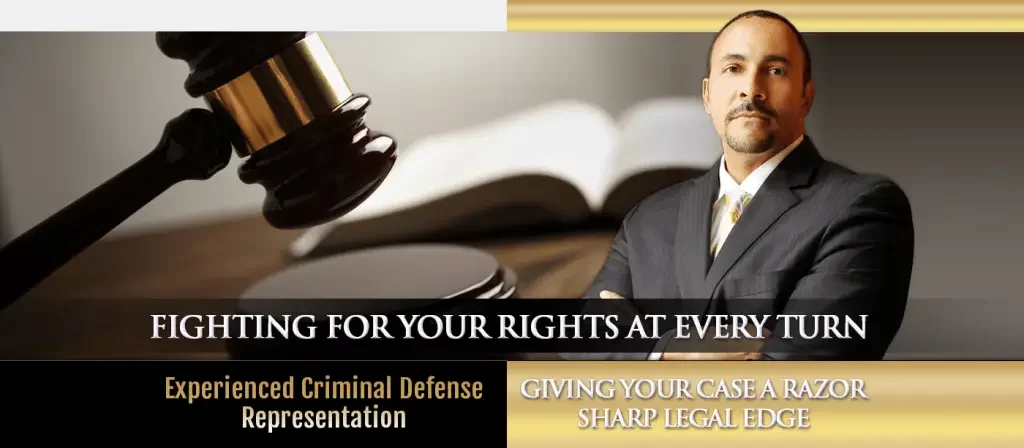Florida Real Estate Attorney
Commercial and residential real estate issues involve a constantly changing and complex set of laws that developers, lenders, businesses and investors must be aware of.
In order to achieve your goals in the real estate landscape and ensure a smooth deal, it is strongly recommended that you hire a knowledgeable Florida real estate attorney at the outset of any commercial or residential transaction.
Having legal counsel on your side not only helps to prepare you for the process but can be especially helpful if legal dispute issues emerge in the midst of it.
Some of the common issues that could prompt you to contact a real estate attorney in Florida include strategically structuring deals in a way that minimizes tax concerns and handling all legal issues associated with the sale or purchase of a residential or commercial property.
Choosing the Right Florida Real Estate Attorney
It is not easy to select the right Florida real estate attorney if you do not have a background in the field. You should always ask for references and pay close attention to the attorney’s background. Verify that the attorney is licensed and in good standing to practice law by communicating this with the state bar.
Experience in the real estate industry and the contracts and paperwork involved is crucial when selecting the right fit for you. Whether you’re a business person looking to identify a commercial property or a new homeowner looking to close a transaction with minimal issues and frustration, an attorney can help you accomplish this.
Top Reasons to Hire a Knowledgeable Florida Real Estate Attorney
There are major reasons why you should retain an attorney at the outset of a real estate transaction. This is so that you do not make any critical mistakes at the beginning of the process that could compromise your ability to obtain or transfer the property to somebody else.
Unbiased Advice
When you retain an experienced Florida real estate attorney to represent you, you get the peace of mind that unbiased advice is being provided to you. All too often, people in real estate transactions, whether residential or commercial, can make what they perceive to be minor mistakes that compromise the integrity and success of their real estate transaction. Since your attorney has no financial interest in the transaction, his or her job is to assist you with an informed decision regardless of the challenges faced.
Legal Issues May Be Tied to the Property
In addition to the terms of purchase, issues like easements, title defects, liens and zoning restrictions can all impact the viability of a real estate investment or sale. Your attorney should be well prepared to investigate all of the relevant issues and your options for addressing them.
Real Estate Transactions Are Complicated
Whether it’s a contingency or a concession, short sale or buy leaseback, real estate transactions are complicated and require a complex understanding of the relevant state statutes. A knowledgeable real estate attorney can help you evaluate all of the terms inside your contracts and advise you about the potential risks that you might otherwise be unaware of.
An Attorney May Be Able to Assist with a Troubled Deal
When a negotiation for real estate breaks down, there is sometimes a window of opportunity that can help the parties save the transaction before they end up in litigation or go their separate ways. An attorney with a significant background in real estate transactions in Florida can help you evaluate all of the relevant alternatives and develop a strategy for getting the deal back on track, if necessary.
Your Lawyer is Prepared to Escalate Things
Although the majority of real estate sales in Florida close without any critical disputes, there are many moving parts in commercial and residential transactions that could land both parties in court. If your deal starts falling apart and you have an attorney involved already, your attorney can quickly assess your options and choices to provide with guidance about whether or not you need to enhance things to take further legal action.
Drafting the Relevant Legal Documents
There are many different documents involved in a traditional real estate transaction. A knowledgeable real estate broker can help you with some of the boilerplate forms but a real estate attorney can draft specific forms aligned with your individual needs.
Handling Negotiations
There’s a good chance that all of the relevant factors involved in your real estate deal are not things that you have the energy or the time to deal with. An attorney can break these down into understandable choices for you and clarify the most favorable terms for your individual transaction.
Researching the Title
One of the most common problems in Florida real estate transactions has to do with the title. You may assume that you’re purchasing the property that you see but you’re only buying the title to that piece of property that is currently held by the seller. It is critical that your Florida attorney conduct an appropriate title search to determine whether or not any other ownership claims, liens or title defects could cause you problems down the road.
Identifying Illegal Improvements or Illegal Additions
Buyers must know whether local codes or state regulations have been followed and if they have not, the options for fixing this. Some of the key questions that could arise that a lawyer can help you with include:
- Does the seller have the duty to disclose an illegal addition to the buyer?
- What happens if a buyer must remove an illegal addition after the closing process?
- Can a buyer sue for damages or cancel the transaction?
- What are the buyer’s rights after the closing process?
Handling a Real Estate Transaction with a Non-Cooperative Co-Owner or Partner
You will need to know if any partition actions may be required under Florida law. This can help to address whether a co-owner will need to sue his or her partner in order to complete a property sale.
Assistance with an Out of Town Purchase
If you are from another location in Florida or from another state or country, then you may not be aware of the certain municipal, county, state, or federal regulations that could apply to the property. These include:
- Who pays for the transfer taxes?
- Are there tax withholding requirements?
Management of Real Estate Transactions Linked to Probate Administration or Trust Administration
In a situation involving estate planning concerns, a personal representative or a trustee represents the interests of the beneficiaries or the heirs and the creditors. Having a knowledgeable Florida real estate lawyer will help with the intersection of trust law, probate court, and real estate.
Commercial Property Specific Concerns
Having a Florida attorney with experience in commercial buildings like a warehouse, apartment building or shopping plaza is crucial because there are additional legal issues such as environmental concerns, structured financing, corporate ownership, tenant claims and more.
Concerns Over Structural Issues
A Florida real estate attorney can help a buyer who needs to perform a relevant inspection to identify the condition of the property and clarify seller disclosure responsibilities under Florida law.
Appraisal Issues
Appraisals can be a crucial component of any real estate transaction but they can also be challenging. A Florida real estate attorney can help a seller and a buyer determine what to do or to recommend relevant contract clauses to address appraisal issues, if there are different appraisal valuations or if the property appraises for lower than the contract price.
No matter the type of transaction you are interested in, finding a lawyer who understands the scope of the landscape and will work hard to protect your interests over the duration of the transaction is crucial. Ideally, this will lead to a smooth real estate transaction in which the property is transferred from one party to another but you also want a lawyer who is familiar with the litigation aspect and protection that may be necessary if there is a dispute.
More On Real Estate and Attorney Steve Taylor
Representation of Buyers and Sellers in Closing a Real Estate Transaction
The purchase or sale of a home, condo, townhouse or vacation property in South Florida is an exciting event, but the actual process can be arduous and overwhelming. Regardless of whether you are the buyer or seller, it’s crucial to have an experienced real estate attorney to guide you at every turn.
Steve Taylor represents buyers and sellers in real estate transactions from Contract to Closing. Our goal is to ensure the process goes as smoothly as possible without delays or costly surprises. Real estate closings are complex and involve a ton of paperwork. We will make sure all the T’s are crossed and the I’s are dotted.
Steps in a Real Estate Closing
Before “sealing the deal” on a real estate property, there are a series of pre-closing actions that must be taken…
Deposit Earnest Money to Escrow Account
When a buyer makes an offer on the property and the seller accepts, escrow is opened and an initial deposit is made to an escrow company (when representing a buyer, we can act as the escrow agent). Escrow is a neutral third party that collects and holds documents and funds in trust for all parties until transaction is complete.
Apply for Home Loan
The buyer finds a lender who will loan money for the purchase of the property.
Get Property Appraised
The buyer’s lender chooses a licensed Florida real estate appraiser to visit the property and prepare an appraisal of value.
Order Title Search
Steve Taylor and his team will perform an exhaustive title search to check the current status of the title and to determine whether or not it’s marketable and insurable. We will search Florida’s public records for any documents relevant to the property including deeds, mortgages, liens, judgments, easements, divorce settlements, or debts owed against the property. If any “clouds” or defects are found, we will pursue the necessary legal remedies to obtain a clean and transferable title.
Order Home Inspections
The seller must disclose everything that they know about the home’s condition. A buyer can order a series of independent home inspections to identify potential issues with…
- termites or other pests
- interior plumbing faucets, drains, and fixtures
- drywall
- pool
- roof
- conditions that could lead to mold
- heating and cooling systems
- insulation and ventilation
- appliances
- electrical panels, breakers, and wiring
- basement, foundation and crawlspace
Order Property Survey
Details all of the exact boundaries of the property, including the placement of fences, driveways, buildings, and all significant landmarks located near the property.
Final Walk-Through of Property
A walk-through is performed the day of or before closing to verify the property is in the same condition it was when the process began.
Two Kinds of Closings in Florida: Face to Face and Mail Away
Residential real estate closings in Miami can be done face to face at an agreed upon location. There, the documents are signed and exchanged between the buyer and seller. The seller receives the sale proceeds and the buyer is given the keys to the property.
Mail Away is used for an out of state buyer in which documents are sent to the buyer and seller, signed and mailed back to agent. The agent then disburses the seller’s proceeds, records the Deed (and mortgage, if any) and then issues a title insurance policy to the buyer (and/or mortgage company).
Preparation of Closing Documents
Steve Taylor and his team prepare all documents needed to close transaction including but not limited to:
- Promissory Note: lists terms and conditions of mortgage loan including the amount, monthly payments, interest rate, late fees, where payments are to be sent, and date of the last payment
- Warranty Deed: transfers title ownership from seller to buyer to legally show title has been transferred. After the deed is signed, it is recorded in public records of the county where property is located.
- Bill of Sale: transfers personal property included in sale such as appliances, drapes, storm panels, garage door opener, etc.
- Property taxes Agreement: prorate taxes
- Title Insurance Policy
- Affidavits: sworn statement that there are no judgments, claims, disputes, liens, encumbrances, demands or other matters pending against that could attach to the Property and there are no violations of governmental laws, regulations or ordinances, no repairs outstanding and unpaid bills for labor, materials or supplies
- Closing Statement or HUD-1: lists the various costs involved in your real estate transaction and tells you who is responsible for paying each.
Closing Costs for Buyers and Sellers in Miami
Closing costs total 2-7% of the home’s purchase price. Buyers incur 3-4% whereas sellers incur 1-3.%
Buyers
- home inspections
- title policy and endorsement from lender
- property survey
- appraisal fees
- taxes and recording fees for deeds and mortgages
- taxes/stamp taxes on loan
Sellers
- title search charges
- recording fees, as well as any other fees necessary to cure title
- documentary stamp taxes on warranty deed
- estoppel fees associated with HOA/Condominium association
- attorney’s fees
- realtor’s commission






